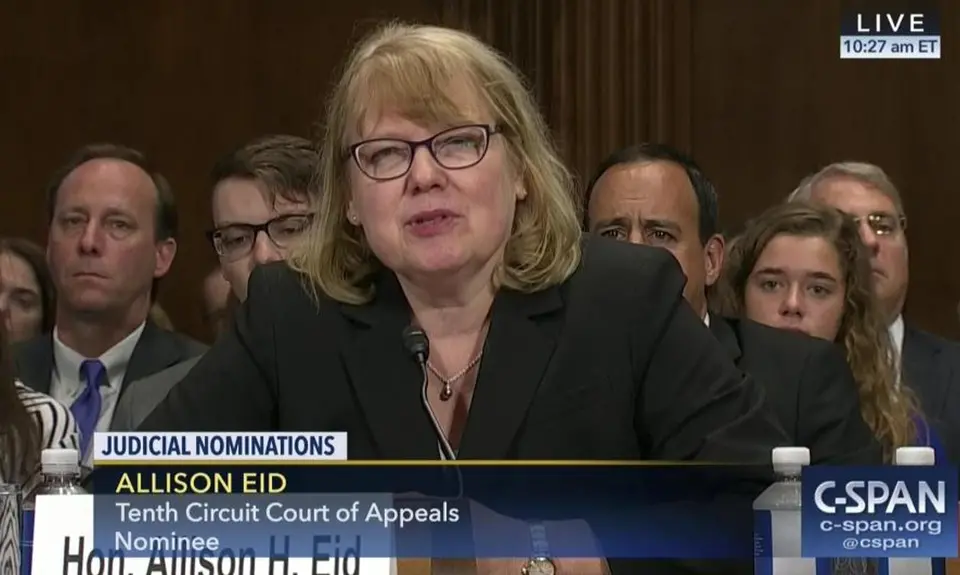“Confirmed Judges, Confirmed Fears” is a blog series documenting the harmful impact of President Trump’s judges on Americans’ rights and liberties.
In October 2019, Trump Tenth Circuit judge Allison Eid cast the deciding vote affirming a criminal sentence while ignoring federal and state statutory language that would have reduced the individual’s criminal sentence. The case is U.S. v. Thomas.
Donald Thomas pled guilty to possession of a firearm. Per the federal sentencing guidelines, prior felony convictions for a crime of violence or a controlled substance offense increase a person’s sentence. Thomas pled guilty to two prior felonies, one of them being for selling imitation controlled substance. At sentencing, the judge ruled that the imitation controlled substance was considered a counterfeit substance and the same as a controlled substance. The court relied on the plain and ordinary dictionary meaning of the word “counterfeit” as the term “counterfeit substance” was not defined in the federal sentencing guidelines. Thomas was ultimately given an enhanced sentence and he challenged it.
Thomas argued that his sentence should have been shorter because the meaning of “counterfeit substance” was incorrectly interpreted. State laws in 36 states and the federal Controlled Substances Act define “counterfeit substance” as a controlled substance that is fraudulently or falsely labeled. Based on that definition, his imitation controlled substance offense should not have been considered as a controlled substance under the sentencing guidelines. The government, on the other hand, argued that “counterfeit substance” should be interpreted based on its ordinary and plain meaning, a noncontrolled substance passed off as a controlled substance. The district court agreed with the government. Thomas appealed.
The majority, including Eid, sided with the district court, reasoning that when a term is not defined in a statute or guideline, the court interprets the word or phrase in accordance with its ordinary, everyday meaning.
Judge Scott Matheson strongly disagreed, explaining that the majority should have relied on the predominant legal and legislative definition because it avoids the limitations inherent in dictionary definitions.
